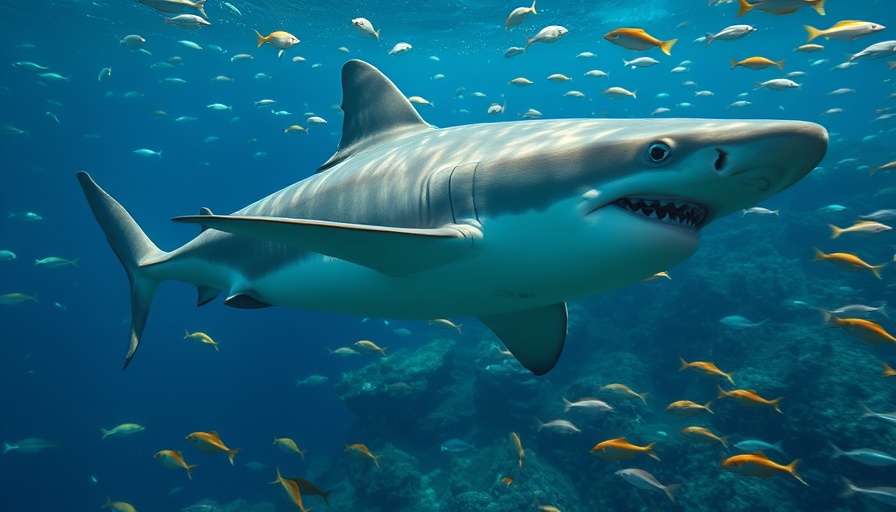
Gulf Sharks Thrive Amid Rising Temperatures
The Gulf of Mexico is experiencing a notable ecological shift, largely due to rising water temperatures caused by climate change. Among the marine life adapting and flourishing in this warmer environment is none other than the bull shark. These apex predators are not only surviving but thriving as juvenile bull sharks are rapidly increasing in number, drawing attention for both their role in the ecosystem and their potential impact on beach activities in coastal areas.
The Warmer Waters: A Double-Edged Sword
While climate change presents various challenges to marine biodiversity, certain species, like bull sharks, seem impervious to the perils that others face. The Gulf of Mexico has seen water temperatures rise significantly, reaching levels that some view as alarmingly high. However, bull sharks, which prefer warmer waters, find these conditions ideal for their survival and breeding.
Interestingly, this increase in temperature is detailed in the recent findings published by the Gulf Research Program, signifying that the Gulf’s warming waters substantially influence marine life dynamics. This juxtaposition of thriving species against a backdrop of overall environmental distress highlights a complex interaction between species and their habitat.
Beaches and Bull Sharks: The Implications for Coastal Communities
As the size and number of bull sharks increase, beachgoers and communities along the Gulf Coast may need to reassess their relationship with these predators. With sharks appearing more frequently in shallow waters, safety concerns have risen, reigniting discussions around shark encounters and education on beach safety. Fishermen also notice changes in fish populations as bull sharks occupy a dominant ecological niche.
Educational programs focusing on shark behavior and safety practices are crucial for coastal communities looking to maintain a balance between recreation and marine life. This isn’t merely an academic concern; local economies, heavily reliant on beach tourism, could face challenges if perceptions of sharks lead to decreased beach activities.
Future Outlook: Understanding Shark Behavior in a Changing Climate
As we delve deeper into understanding how changing water temperatures alter shark behavior and ecosystems, it’s imperative for researchers and environmentalists to collaborate closely. The rise in bull shark populations presents an opportunity to study their impact on fishery dynamics and overall marine health.
Moreover, predicting shifts in shark behavior can aid in better safety protocols for beachgoers. Scientists have already noted changes in feeding patterns and reproductive cycles, suggesting these changes could have long-lasting implications for biodiversity in the Gulf of Mexico.
Engaging the Population: Why Shark Awareness Matters
Awareness and education regarding sharks are vital in fostering a safer beach experience for everyone. Shark Week, for example, has played a pivotal role in reshaping cultural perceptions about these creatures, transitioning from fear to appreciation. Amplifying shark education can help demystify these animals and encourage responsible coexistence.
Local organizations and government bodies can leverage Shark Week initiatives to engage communities in understanding marine conservation. By promoting awareness, residents can participate in stewardship programs that support sustainable tourism and the preservation of the unique Gulf ecosystem.
In conclusion, as we witness the continuing rise of bull sharks in warmer Gulf waters, a balanced outlook is essential for the safety of beach lovers and the preservation of marine ecosystems. The interplay of ecology and community dynamics means that knowledge and awareness will be key in navigating these changes. Embrace the opportunity to learn more about bull sharks and their vital role in marine health.
 Add Row
Add Row  Add
Add 




Write A Comment